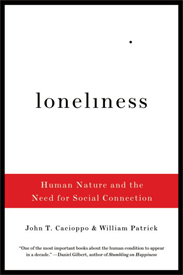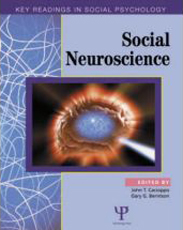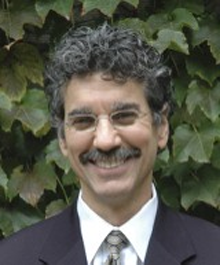Dr. John
Cacioppo
University of Chicago
John Cacioppo is the Tiffany and Margaret Blake Distinguished Service Professor at The University of Chicago, the Director of the University of Chicago Center for Cognitive and Social Neuroscience, and the Director of the Arete Initiative of the Office of the Vice President for Research and National Laboratories at the University of Chicago. He served on the faculty of the University of Notre Dame (1977-1979), University of Iowa (1979-1989), and Ohio State University (1989-1999) prior to joining the faculty at the University of Chicago.
He has also served as an External Professor Chair in Social Neurosciences at Free University Amsterdam in the Netherlands and is a Guest Professor at the State Key Laboratory of Cognitive Neuroscience and Learning at Beijing Normal University in China. Among the awards he has received are the Scientific Impact Award from the Society for Experimental Social Psychology (2009), the Distinguished Alumnus Award from the Ohio State University Department of Psychology (2009), the Order of the Sons of Italy Award (2009), the Presidential Citation from the American Psychological Association (2008), the Theoretical Innovation Prize from the Society for Personality and Social Psychology (2008), the Award for Distinguished Service on Behalf of Personality and Social Psychology from the Society of Personality and Social Psychology (2008), the Distinguished Member Award from Psi Chi (2006), an Honorary Doctor of Science Degree from Bard College (May, 2004), the Patricia R. Barchas Award from the American Psychosomatic Society (2004), the “ISI Highly Cited Researchers” in Psychiatry/Psychology (2003 - present), the Distinguished Scientific Contribution Award from the American Psychological Association (2002), the Campbell Award (for Distinguished Scientific Contributions to Personality and Social Psychology) from the Society for Personality and Social Psychology (2000), the Award for Distinguished Scientific Contributions to Psychophysiology from the Society for Psychophysiological Research (2000), the Distinguished Scholar Award from the Ohio State University (1996), and the Troland Research Award from the National Academy of Sciences (1989).
He has been elected to the American Academy of Arts and Sciences, Society of Experimental Psychologists, and the Gesellschaft fur Unendliche Versucheand, and he is a Fellow of the American Association for the Advancement of Science, Association for Psychological Science (Charter Member), the American Psychological Association (Divisions 1, 3, 6, 8, 23, & 38), the Royal Society of Arts, the American Academy of Behavioral Medicine Research, the Midwestern Psychological Association, the World Innovation Foundation, International Organization of Psychophysiology, Society for Personality and Social Psychology, Society of Experimental Psychologists, and Society of Behavioral Medicine.
He has also been elected President of several scientific organizations including the Association for Psychological Science, the Society for Personality and Social Psychology, the Society for Psychophysiological Research, and the Society for Consumer Psychology, and he is either a past or present member of the Board of Directors or Advisory Council/Board of a variety of organizations including the National Advisory Council on Aging of the US Department of Health and Human Services, Association for Psychological Science,Ohio State University Research Foundation, Society for Psychophysiological Research, National Research Council Board on Behavioral, Cognitive, and Sensory Sciences, Federation of Associations in Behavioral and Brain Sciences Foundation, Beckman Institute for Advanced Science and Technology at the University of Illinois, John Templeton Foundation (American Board), Cluster of Excellence “Languages and Emotion” at Free University Berlin (International Board), Health and Retirement Study Data Monitoring Board of the National Institute on Aging, and Society for Personality and Social Psychology. Cacioppo has served on various journal boards, as well, as is a past Editor of Psychophysiology, a former Associate Editor of Psychological Review and Perspectives on Psychological Science, and is currently an Associate Editor of Social Neuroscience.
He is also a former member of the MacArthur Foundation Mind-Body Integration Network and is a current member of the MacArthur Foundation Aging Society Network and the Director of the Chicago Social Brain Network.
|
STUDY GUIDE
As a social species, humans create emergent organizations beyond the individual - structures that range from dyads, families, and groups to cities, civilizations, and international alliances.
These emergent structures evolved hand in hand with neural, hormonal, cellular, and genetic mechanisms to support them because the consequent social behaviors helped humans survive, reproduce, and care for offspring sufficiently long that they too survived to reproduce. Cacioppo's research is focused on understanding these neural, hormonal, cellular, and genetic mechanisms and their effect on the mind, behavior, and health - an approach he and Gary Berntson termed social neuroscience.
Social neuroscience represents an inter-disciplinary approach devoted to understanding how biological systems implement social processes and behavior and to using biological concepts and methods to inform and refine theories of social processes and behavior. We use a variety of methods in our research, including functional magnetic resonance (fMRI), standard and high density electroencephalo-graphy and event-related brain potentials, psychophysiological assessments, and neuro-endocrine and immune assays, and in collaboration with colleagues we also have begun to bring quantitative genetics to bear on our research questions. |


|





